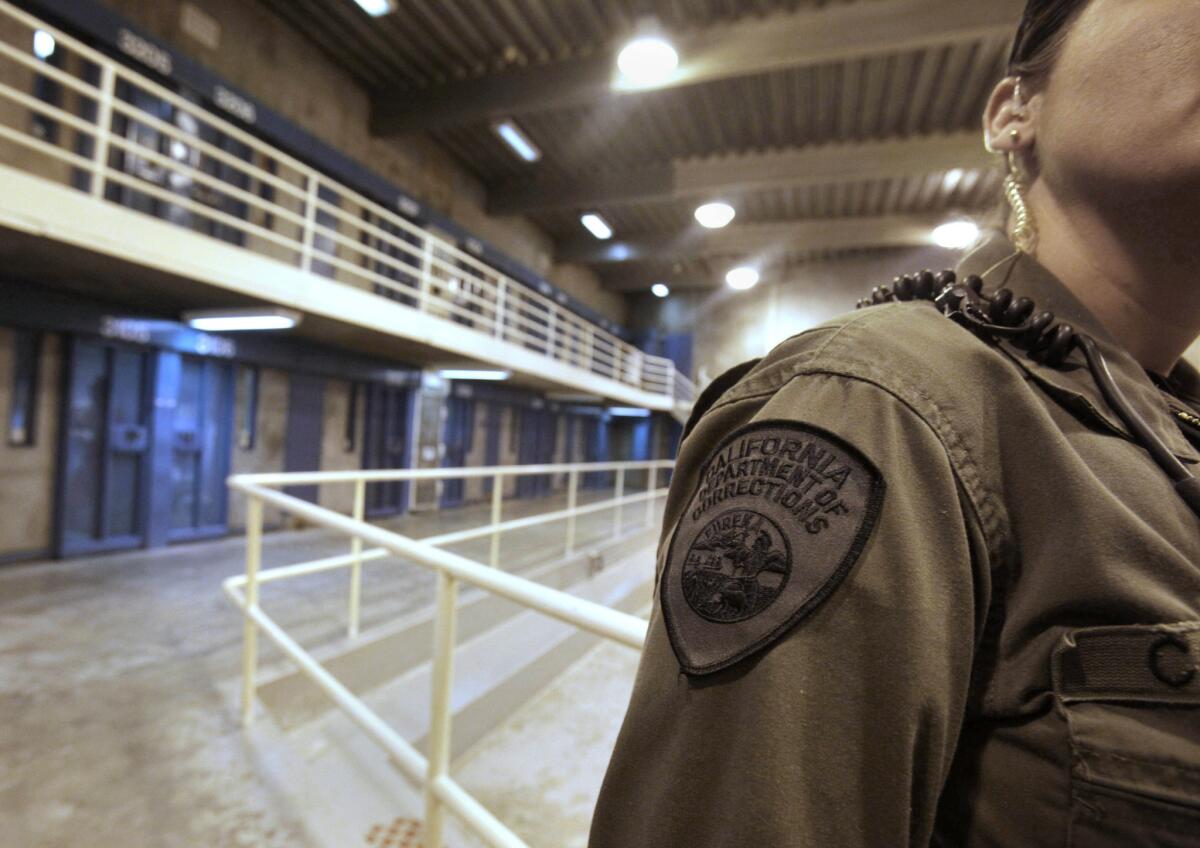The strike against solitary confinement

- Share via
On Monday, some 30,000 inmates across California began refusing meals to protest a state prison policy that often lands suspected gang members in solitary confinement indefinitely — a policy that Amnesty International has deemed to be “cruel, inhuman or degrading treatment in violation of international law.”
In theory, the policy is intended to protect other inmates and to prevent gang members from continuing to organize criminal activity from behind bars. But solitary confinement is too blunt a weapon to be wielded so casually. Inmates held in the Security Housing Units are confined for 221/2 hours a day in tiny cells, without sunlight or fresh air, and with no direct human contact. Often they remain in solitary for years — sometimes decades — and they are entitled to a review only once every four years. In 2011, 200 prisoners had spent 10 or more years in the Pelican Bay Security Housing Unit; 78 had spent more than 20 years.
No one disputes that special measures are needed to ensure that certain prisoners don’t pose a threat or continue to break the law. But the protracted use of isolation carries a brutal cost. Multiple studies indicate that prisoners subjected to severe isolation are prone to mental illness, including psychosis. What’s more, although the 3,100 prisoners in solitary make up only about 2% of the state’s prison population, they accounted for 42% of the suicides from 2006 to 2010.
Amnesty International found conditions in the Security Housing Units to violate international law and, probably, the U.S. Constitution. Yet despite its calls for reform and a federal lawsuit filed by 10 Pelican Bay inmates, prison officials have been slow to act. So far, officials have agreed to release back into the general population nearly half of the 400 inmates whose cases have been reviewed, acknowledging that they show no evidence of gang-related behavior.
But much more is needed. Among other things, human rights groups note that inmates are being held in solitary for years for a crime — gang membership — for which they were never tried or convicted.
As this page has previously said, the governor should assemble an independent panel to investigate the use of solitary confinement and determine what changes are necessary to ensure California’s prisons aren’t on the wrong side of the law.
More to Read
A cure for the common opinion
Get thought-provoking perspectives with our weekly newsletter.
You may occasionally receive promotional content from the Los Angeles Times.






